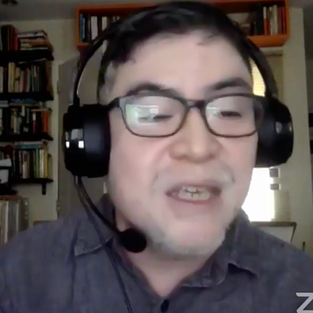RCEP, needed this pandemic; more problems than benefits
- Melo Acuna
- Nov 30, 2020
- 3 min read
Hopes aired RCEP would benefit developing member-countries
MANILA – Both the government and leaders of civil society organizations expressed optimism the recently-signed Regional Comprehensive Economic Partnership would provide more benefits than problems to developing countries like the Philippines.
Trade and Industry Asst. Secretary Allan B. Gepty said the agreement was signed by 15 countries, ten of whom are members of the Association of Southeast Asian Nations (ASEAN) and five of its strategic partners last November 15,2020.
“The Philippine Senate will have to ratify the agreement,” he said over Tapatan sa Aristocrat virtual forum earlier today.
Meanwhile, ASEAN Desk head Ms. Denise Cheska C. Enriquez said as soon as the agreement has been ratified by the different countries, it will take effect in one or two years.
However, Joseph Purugganan of the Focus on the Global South-Philippines said after eight years of negotiations, the general public just knew of the Agreement’s provisions after negotiators refused to reveal the details to which Asst. Secretary Gepty said the Supreme Court has ruled in favor of the confidentiality of details subject to negotiations. Purugganan was straight forward in saying different countries will benefit differently from RCEP with due advantage to developed countries like Australia, New Zealand, Japan, South Korea and China.
“Now that we have the Agreement’s text, we can seriously study what the government committed to the partnership. We have to see if we stand to benefit from it and check if we’re right on what we opted to give up,” he said.
However, Asst. Secretary Gepty said it is normal for negotiators to keep the details confidential but they do consult with stakeholders and have always been transparent.
Asked how difficult was it to negotiate, Asst. Secretary Gepty said there’s give and take during negotiations and periodic evaluation will have to be done to weigh the pros and the cons in parties’ respective positions.
Ms. Enriquez said the RCEP is ASEAN-led contrary to earlier notions it is China-led.
The DTI official said ASEAN has a lot of trade agreements with countries like China, Korea, Japan and Australia.
Speaking of bilateral agreements, the Philippines has an FTA with Japan as well as countries like Norway said Ms. Enriquez.
Purugganan said opening the economy has been a practice in the Philippines since the 1980s. He added there’s a backlash against globalization because of the level of inequality widened as the number of billionaires increased.
He added the RCEP came at a time when the world economy’s reeling from the impact of COVID-19 pandemic and it is indeed “unfortunate that we oblige ourselves to an agreement when the future’s uncertain.” He said there has to be some flexibility.
However, Gepty said RCEP has assured signatories of the free flow of medicines and essential goods preventing more conflict among countries.
“The RCEP came at a time when the world will learn that international trade system is functioning and countries need more economic activities to generate more jobs,” he said.
Describing RCEP as a plurilateral agreement, Professor Eduardo Climaco Tadem said a study revealed the latest partnership will at 0.2 percent to the economies of the member countries by 2030 or ten years from today.
“Free trade for the past 40 years resulted in miniscule benefits,” he said.
“The RCEP will be beneficial in the long run because countries like the Philippines will acquire technology and knowledge,” said DTI’s Denise Cheska Enriquez.
On a pragmatic note, Mr. Purugganan said the Philippines imports more from RCEP countries that what is exported as he called for policy coherence for the country to be an active part of the value chain.
“We should not look at RCEP as panacea to all existing problems because there is a need to further study the provisions,” Purugganan added.
Prof. Tadem said he would rather look at the cost of joining RCEP because he believes its costs would outweigh the benefits. He added although the growth rates among ASEAN countries were significantly high before the onset of the COVId-19 pandemic and socioeconomic concerns have increased. (Melo M. Acuña)
RCEP - a controversial issue. DTI Asst. Secretary Allan B. Gepty, ASEAN Desk Head Denise Cheska C. Enriquez, Focus on the Global South - Philippines' Joseph Purugganan and UP Professor Ed Climaco Tadem shared their views on the issues at hand. (Screen grab from Tapatan sa Aristocrat/Melo M. Acuna)











Comments